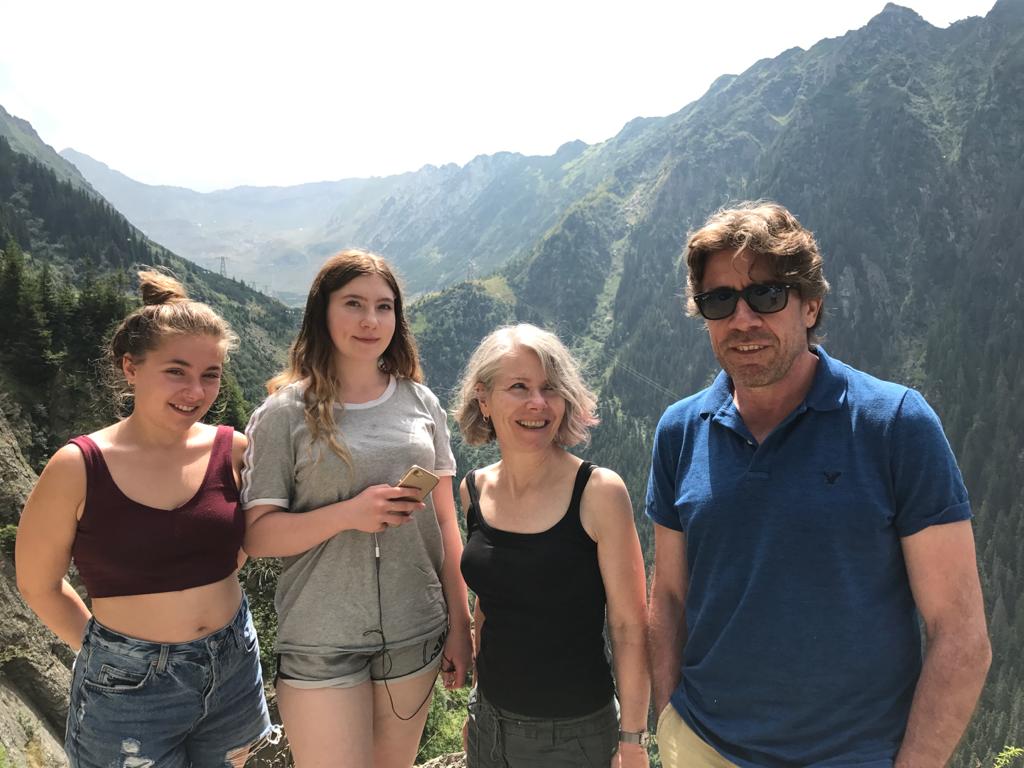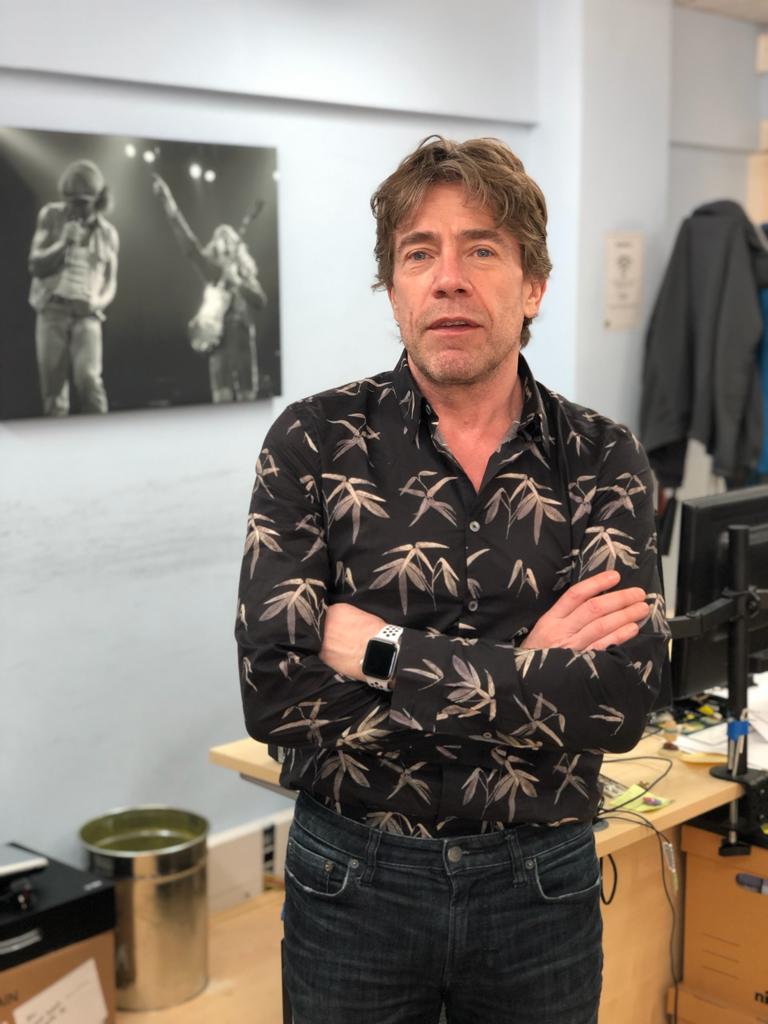
Interview with CEO/Founder/Owner of O-Video Ltd (UK), CEO/Founder/Owner of O-Video SRL (Moldova) Ovi Preda.
– When and where were you born? Who are your parents?
I was born in 1963 on the 14th of February in Brasov, Romania. My parents are Annika and Georgy Preda. My father passed away a few years ago, and my mother still lives in Brasov.
– What did your parents do?
My mother works as a nanny and my dad was a technical worker in one of the factories in the region.
– What memories do you associate with your school years, and what subjects were your favorite at school?
The first educational establishment in my life was School no. 19, and after that came the IT lyceum, and my higher education were finished off with a diploma from the Engineering and Mechanical University from Brasov.
– Why did you pick this subject to study at university?
First, it was because it was very close to home. Actually, that’s pretty much the only reason. Mountain skiing is a sport that I really enjoy, I could do it throughout the whole winter – that’s another reason.
– What activities did you enjoy at university?
Women… I was never obsessed with education and intellect and am still not.
As I understand it, at the time military service was compulsory in Romania.
– Did you serve?
Yes, of course, I served for 9 months. I was accidentally assigned to the security services in Bucharest because I was born in the same year as another boy whose father was a big chief, so I ended up there.
– Why only 9 months?
Because I had higher education.
– So, you have an officer rank?
I was a senior lieutenant because I was a persona non grata for the Communists since while I was studying at university I worked as a skiing instructor with foreigners. I was an “untrustworthy” individual in the eyes of the Communist Party.
– At what age did you start working?
Yes, of course, yes. In 1987, in a “nonexistent” factory, but actually just somewhere in the middle of Romania, which produced parts for tanks, trucks, and other heavy equipment. After this experience, I came back to Brasov. In Poiana Brasov (a ski resort), I ‘repurposed’ to be a ski instructor during the winter, and for the rest of the year, I worked as a guide on the Black Sea coast. I did this until 1990, until the revolution.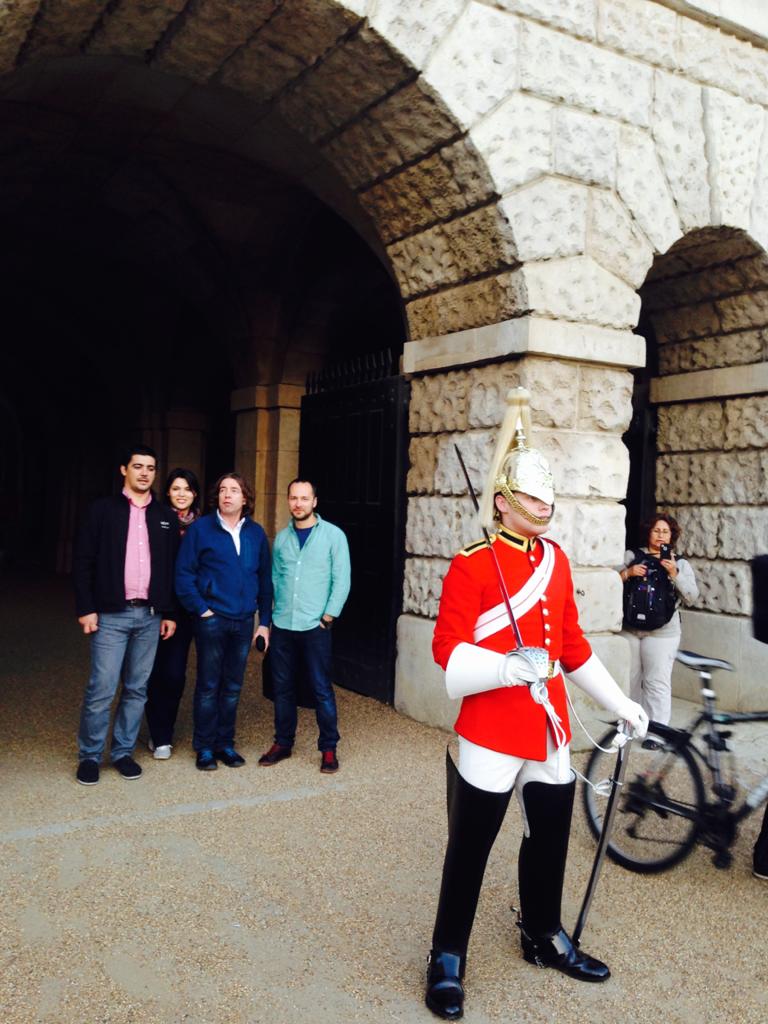
– What did you do at the time of the revolution? Were you an avid supporter or were you distanced from the events?
I was in Bucharest at the time, but there was no big revolutionary in me, I didn’t even understand the concept itself – “revolution”. At the end of the day, we all know that this wasn’t even a revolution in the classical sense, but a coup d’etat.
– How did the life of Ovi Preda change after the revolution?
I packed my bags and I left. Not because I had to, but because I wanted some change. I was 27 years old, a young man eager to see the world. And so, my adventure began.
– And details about what happened afterward?
I went to see my friends in England, they’re also ski instructors, I bought a few cars, sold them, met my future wife, an English woman, and stayed in the UK. There wasn’t a language barrier. I knew English well, because of my past work with foreign tourists, so it was easy for me to adapt to a new country.
– Remembering that time, almost all socialist countries were pretty poor. What was your financial situation like when you went to England?
I had money because I got good tips from my clients. My first job in the UK was “bartering” at the company Visual Impact. One of the directors that hired me wanted to adopt a child, and at the time Romania was setting up a lot of orphanages and my mother worked as a nanny, so he asked for my help. In return, he promised help with work placement. So, I became a truck driver. Then, I became an accounting specialist in that same company. Then came the technical department, and I got trained in lens repair, worked in the service center. Actually, getting this job coincided with the period of a technological transition – from dos to Windows. I built a computer network and moved everyone in the company to Windows.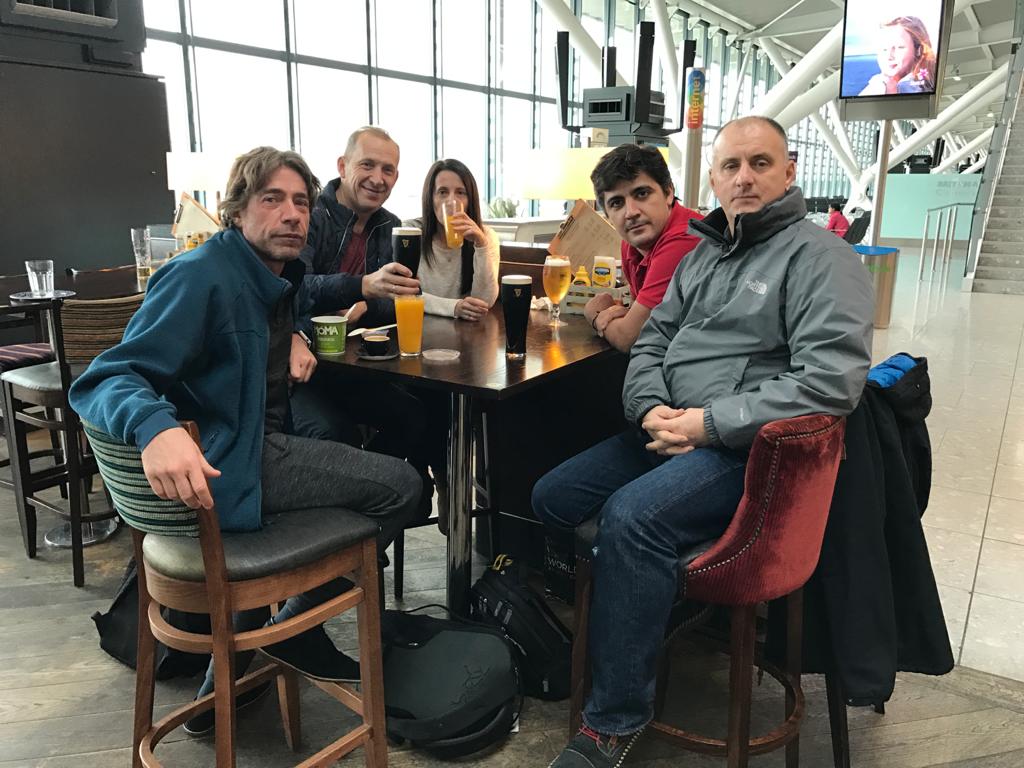
– How long did you work at Visual Impact, and when did you know that you want your own business?
In 1994 Romania started to attract investors, companies with a registered capital of $10,000 were exempt from taxes. At that moment, I decided to start my business in my home country. This is how the company O-Video was born in Brasov. It all started with videotapes and continued with equipment. In 2000, I opened an office in Bucharest. In 2005, we opened an office in Moldova, and then one in the Czech Republic. We started by selling equipment from Sony, and now we produce audiovisual products, cinematography, TV, and cinema equipment. In 2014, we opened a studio for post-production in Bucharest. We do the film, do editing, color-correction, and everything else that’s related. We even get orders from Argentina. For example, my colleagues Dan and Alex created a virtual reality with Cirque du Soleil for an advertising clip of the company Rexona. So the conversation keeps going and the history of the company stretches back about 25 years.
– Is the success of the company entirely because of you?
Of course not, the credit goes to my whole team, which I have collected over many years. You cannot develop a business without people. If you care about your employees, the employees will care about the clients. If, as the head, you care only about the clients and the income, you’re headed for a fiasco. If the team you’re working with is happy, then I can say with certainty that the clients will be happy too. And a happy client is a guarantee of financial wellbeing, no?
– You’ve opened two offices in Romania, and one each in Moldova and the Czech Republic, why have you stopped there?
There was an attempt in Slovenia, but it didn’t work out. The people over there wanted an independent business. Then there was an attempt in Hungry, and something didn’t work out there too. Now, there is a bit of uncertainty, because there are changes due to the Brexit phenomenon. I don’t know how this is going to affect my business. So, when we meet in 2021, I will tell you what’s going on…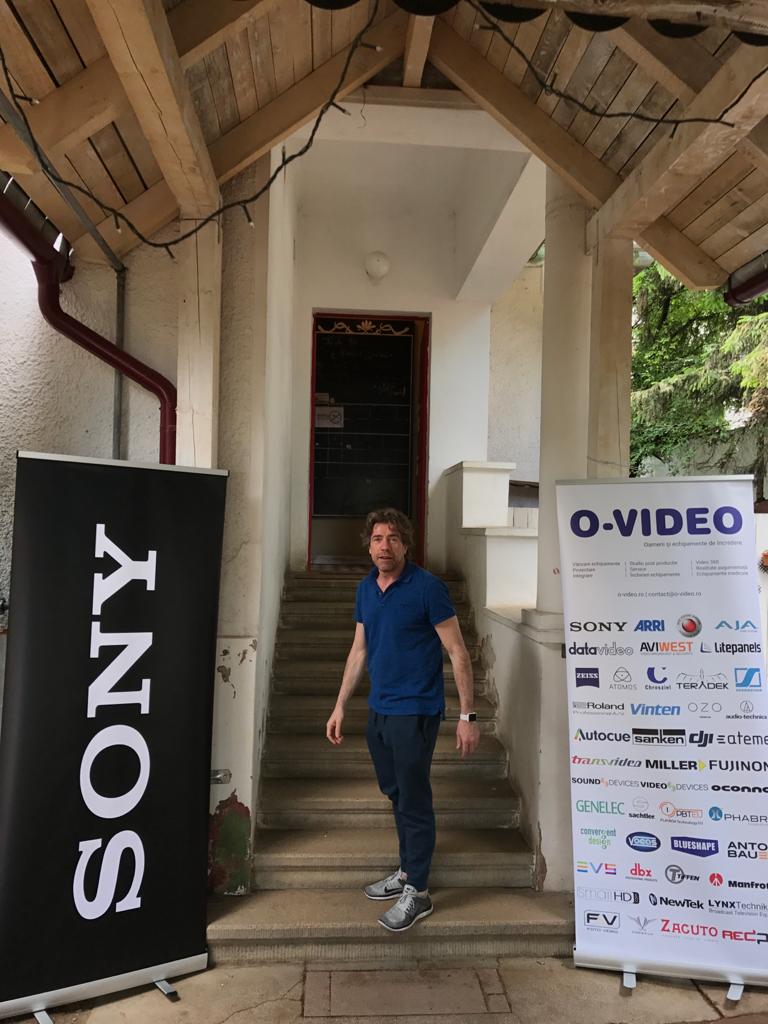
– Have you considered going back to Romania?
If I’m being honest, not even for a second. It’s been 29 years since I left, and I’ve gotten used to a different lifestyle. Maybe it wouldn’t be bad, but that system has still retained the “scent” of old times; the eastern-European regime is different from what I’ve become used to. In 29 years, I’ve learned to live differently, and also the bureaucratic level in Romania is on a different level.
– There is no bureaucracy in the UK?
There is, not but as much. In Romania, for example, you still need stamps on invoices, it’s just idiotic. What is a stamp? Anyone can make a stamp, so bureaucracy births corruption.
-Tell us about your family.
My ex-wife is an art director, we got married in 1991 and split in 2018. We have two wonderful daughters; one is 27 and the other is 22. The eldest works in Bristol, in an architecture company, and the youngest is studying business-fashion management, and is currently in an internship placement, to broaden her experience.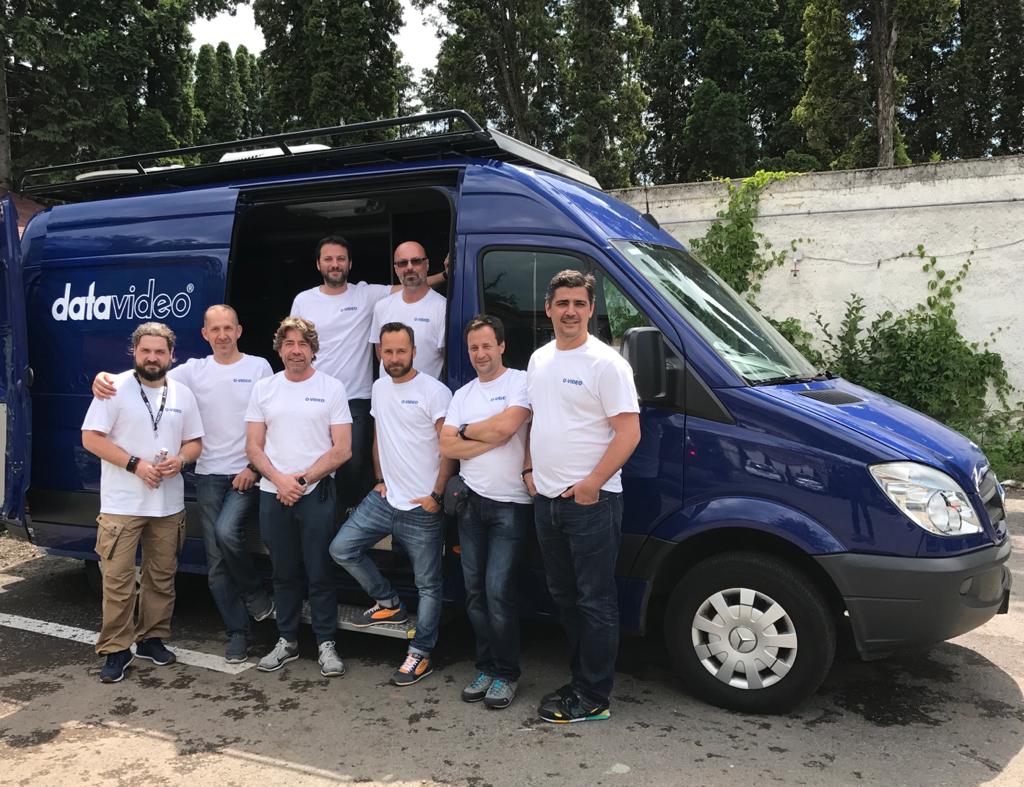
– Will the girls take over the business?
I don’t think so, they prefer other things. I really hope that one of my students, from my team, will continue what I’ve started. But I’m not thinking about that yet, I’m 57, so I’m not planning my retirement.
– How have you managed to stay afloat during the pandemic period?
We practically haven’t stopped activity. We’re not a bank, where the employees have to be at the office all day. We have a different method of working — we meet with clients and make contracts. Everything is pretty much stable over here, so we’re calm and patiently waiting for the vaccine. And who knows, maybe it’ll end up being even better than before the pandemic. Of course, some production has been stopped, because different kinds of social events like sports and shows have been paused. Maybe in the future, everything will come back to normal and we will restart all our work in that area. This year we have concentrated on audiovisual production because people need films and series.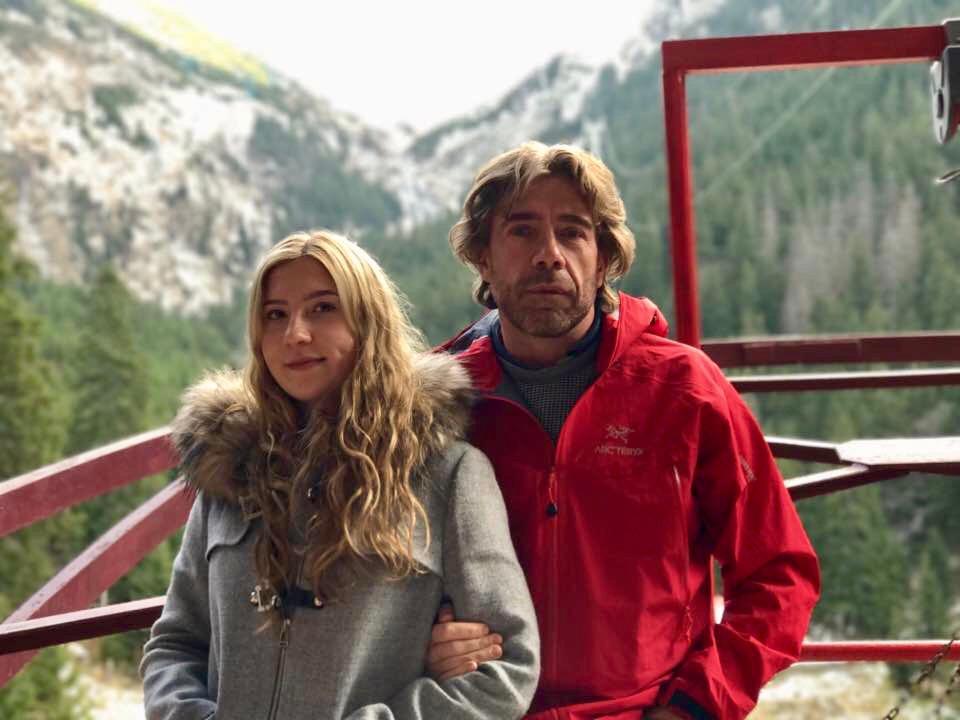
– How has the pandemic affected the state of the technological sphere; what will be next? What are your predictions?
The pandemic hasn’t brought us any positives. People are no longer interacting, everyone hides behind their chairs on ZOOM, everything has turned into “bullshit”. I don’t know, maybe I’m exaggerating, but this seems to be the reality. In our business it is very important to speak to people face-to-face, it’s crucial to feel and observe the nonverbal reaction of a person. The pandemic has deprived us of this.